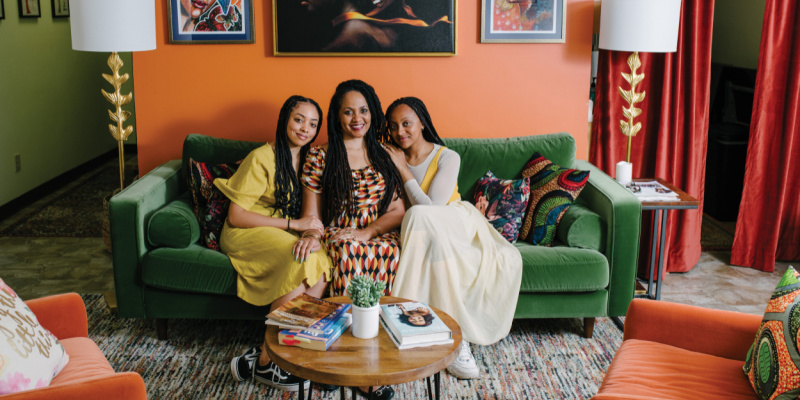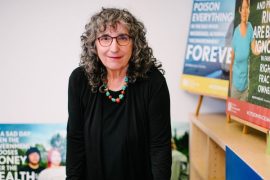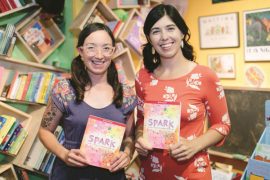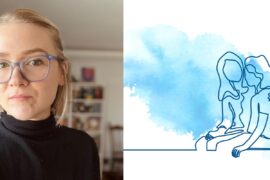By Emily McCluhan | Photography by Hillary Schave
Activism and problem-solving are ever-present themes in the Caire family. This persistent push to better their community stems from matriarch Lisa Peyton-Caire, who founded the Foundation for Black Women’s Wellness (FFBWW) in 2012, a nonprofit committed to eliminating health disparities impacting the lives of Black women and girls. Similarly, father and Madison native Kaleem Caire is the former CEO and president of the Urban League of Greater Madison, and founder of One City Schools, a Madison charter school where four of the five Caire kids work.
“I don’t tell my daughters to mimic me, but to be a light, and to recognize that we’re all born with gifts. It is no accident what those giftings are. That is my personal belief that when you recognize these gifts, it’s your duty to exercise them in the world and to leave the world a better place than you found it,” says Lisa, a native of Virginia. “I see them doing that, and that gives me all the satisfaction.”
In 2001, after living in Madison for eight years, the family moved back east for a career change when daughter Amira was just four years old, and other daughter Alana was born there shortly thereafter. The sisters spent much of their childhood there. This was also where Lisa started her formal advocacy work for Black women’s health, and launched the first Black Women’s Wellness Day in 2009. The family moved back to Madison in the early 2010s for work. The move was jarring for Alana, who says they were surrounded by a thriving Black community in Maryland.
“A lot of my peers in Madison that look like me were not as driven as I was, and at the same time they were often discriminated against in school,” says Alana. She says she found her voice when she joined the Black Student Union at West High School as a sophomore. “Joining BSU helped me feel empowered, like I had more control over the situation. It helped me learn more about Black people in Madison, especially what Black children in Madison go through. It even helped me understand more about child psychology and how discrimination and microagressions affect people growing up.”
As Alana weighs her next step since graduating last May, she writes as a creative outlet. She’s currently working on a fantasy novel that tackles racial inequality through mythical characters to tell the story of what the world could look like if justice was more prevalent.
Her older sister, Amira, focuses on visual arts and painted five of the murals in downtown Madison during the social justice movement in 2020, with Alana as a supporting artist on some of them.
“It gave the girls another venue to express themselves in a different way than I would speak about these issues in a more formal space. Instead, it was an artistic public space, and it spoke volumes,” says Lisa.
Besides seeing her daughters find ztheir voices, Lisa says that watching their journey as sisters brings her back to the words of her own mother: Be there for each other. Show up for each other.
“I’ve tried to teach my daughters that through all of their phases of sisterhood. To see them having each other’s back and even them working together on their art is a powerful thing. And from that relationship, they’re influencing the world beyond.”
Lisa thinks about the influence her own mom, Roberta, had on her life. She passed away as the result of congestive heart failure at the age of 64, and she was the reason Lisa founded FFBWW. Her eyes moisten as she reflects on the final advice Roberta gave her as she took her last breaths.
“She grabbed my hands, and she whispered to me, ‘Take care of yourself. And don’t ever give up. Don’t ever stop fighting,’” she pauses. “I knew what she meant because life is a fight; it’s a journey, it’s a struggle, and it’s beautiful and it’s ugly. That moved me because my mom, as mothers do, they know your whole life — just as I know Alana’s and Amira’s lives in ways they can’t comprehend. That gave me all the energy and fortitude that I’ve needed since she closed her eyes in May 2006.”




